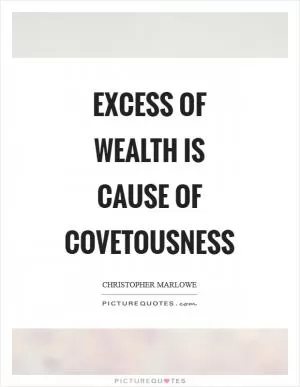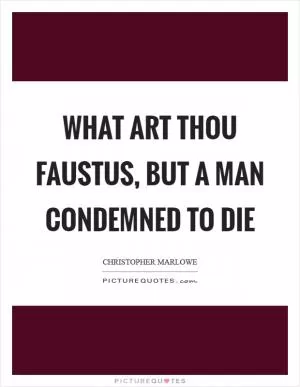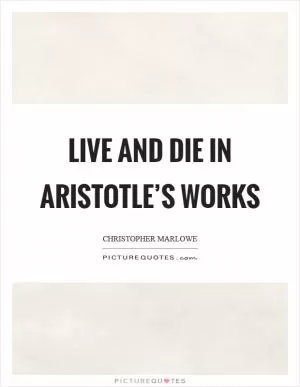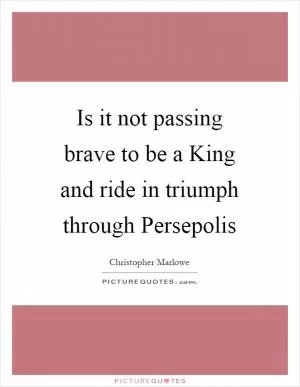While money doesn't buy love, it puts you in a great bargaining position

While money doesn't buy love, it puts you in a great bargaining position
Christopher Marlowe, the renowned Elizabethan playwright and poet, is often associated with themes of power, ambition, and desire in his works. One of his most famous plays, "Doctor Faustus," explores the consequences of selling one's soul for wealth and power. In this context, the quote "While money doesn't buy love, it puts you in a great bargaining position" takes on a new significance.In "Doctor Faustus," the protagonist, Dr. Faustus, is a brilliant scholar who becomes dissatisfied with his life and makes a pact with the devil in exchange for unlimited knowledge and power. Faustus believes that with his newfound wealth and influence, he will be able to win the love and admiration of others. However, as the play unfolds, Faustus realizes that money and power cannot buy true love or happiness. Despite his wealth and status, Faustus is ultimately consumed by his own greed and ambition, leading to his tragic downfall.
The quote "While money doesn't buy love, it puts you in a great bargaining position" can be seen as a reflection of Faustus' misguided belief that wealth and power can make him happy. Faustus believes that by acquiring money and influence, he will be able to control his own destiny and win the love and admiration of others. However, as the play demonstrates, true love and happiness cannot be bought or traded for material possessions.












 Friendship Quotes
Friendship Quotes Love Quotes
Love Quotes Life Quotes
Life Quotes Funny Quotes
Funny Quotes Motivational Quotes
Motivational Quotes Inspirational Quotes
Inspirational Quotes